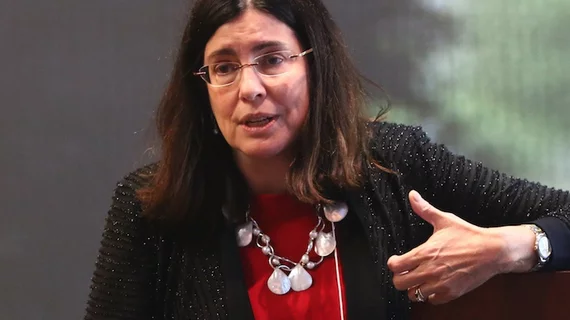ACR experts advising President’s Cancer Panel on boosting breast imaging numbers post-COVID-19
Two American College of Radiology industry experts are advising the President’s Cancer Panel on ways to boost breast imaging rates during the pandemic and beyond, the group announced Monday.
They include Chief Research Officer Etta Pisano, MD, along with Michigan Medicine professor Ruth Carlos, MD, editor-in-chief of JACR. The two are taking part in virtual panels running through Thursday on ways to bring innovation into imaging amid widespread slowdowns.
“The COVID pandemic has unfortunately reduced access to breast cancer screening, which may exacerbate already significant disparities in breast cancer outcomes,” Pisano, who is also chair of the high-profile Tomosynthesis Mammographic Imaging Screening Trial, said in a statement. “I look forward to contributing to this very important discussion,” she added later.
Numerous recent studies have detailed the novel coronavirus’ severe effects on breast cancer screenings, as providers postponed nonurgent care and patients stayed home to avoid contracting the disease. Earlier this month, University of Pennsylvania explored how, over the 20 weeks following March 11, diagnostic mammography volumes plummeted 38% while screenings dropped 58%. And they believe it will take at least 22 weeks to clear the queue of delayed care, according to the analysis of commercial claims data published in Health Services Research.
The President’s Cancer Panel was first established in 1971 and is tasked with reporting to the commander-in-chief on barriers that may be preventing the country from fighting the disease. ACR noted that experts plan to compile a white paper stemming from this week’s discussions.

